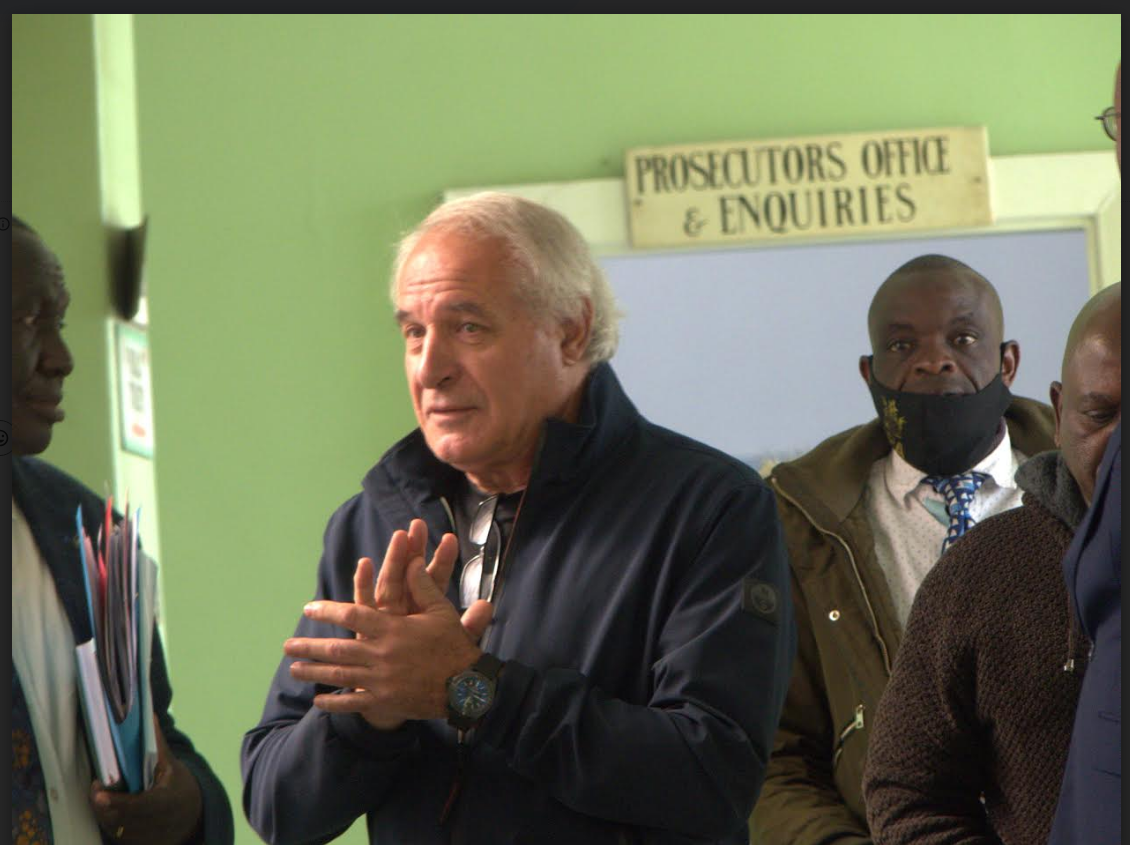
In a landmark decision, Zimbabwe's High Court Justice Joseph Mafusire recently awarded US$18 000 in defamation damages to Fadzai Mahere, former spokesperson for Citizens Coalition for Change, in her case against trade lawyer Petina Gappah.
The legal battle, stemming from statements made on X (formerly Twitter), represents a significant shift in Zimbabwe’s defamation laws, now extending to digital spaces.
Traditionally confined to traditional media, defamation law has evolved to encompass social media, reflecting the growing complexity of misinformation and disinformation in the digital age.
This ruling underscored the importance of accountability in online discourse, especially in a country where mis/disinformation is rife, often contributing to political and social instability.
However, the distinction between mis/disinformation is critical — misinformation refers to sharing unintentionally false or inaccurate information, while disinformation is deliberately false content spread to deceive or manipulate.
As the Mahere case illustrates, Zimbabwean citizens, including media professionals, must now be more vigilant about their online posts, given the potential legal consequences.
This comes against a backdrop of rampant mis/disinformation, particularly during elections, exacerbated by the country’s deep political polarisation.
“Mis/disinformation can cause serious instability. It can lead to the undermining of institutions of governance, democratic institutions like our electoral processes,” says political analyst Rashweet Mukundu.
- Chamisa party defiant after ban
- Village Rhapsody: How Zimbabwe can improve governance
- News in depth: Partisan police force persecutes opposition, shields Zanu PF rogue elements
- Chamisa chilling death threat bishop defiant
Keep Reading
“Most importantly, it makes it hard for citizens to engage across the political divide, further polarising society.
People become entrenched in their own views and are unwilling to consider a balanced perspective on politics and society, which can escalate to both online and offline.”
According to the executive director of Zimbabwe Elections Support Network (Zesn) Rindai Chipfunde Vava, “Zesn noted with the concern, that during the run up to the 2023 harmonised elections, social media was awash with the use of doctored images, particularly targeting female candidates.”
She added: “Visuals, including altered posters that hypersexualized women were circulated to discredit and harass women which is violence against women in elections (VAWIE).
“These doctored images, for example, National Assembly aspiring candidate for Hatfield Constituency and aspiring local authority councillor Pelandaba Tshabalala ward 20, to name, but just a few were weaponized to spread disinformation, often portraying the women in false, damaging contexts to undermine their credibility.
“This trend highlights the gendered nature of election-related disinformation, further complicating efforts to ensure fair participation and protection for female candidates.”
“In Zimbabwe, the spread of false information is most prevalent on WhatsApp, owing to its widespread use in group chats” said Sean Ndlovu, product and innovation lead at CITE, one of the organisations involved in fact-checking in Zimbabwe.
He added: "The most common forms of mis/disinformation in Zimbabwe include doctored images inflating crowd sizes at political rallies, false economic reports, fake social media accounts impersonating public figures, political rumours about election rigging, health, ethnic, and religious-related content."
Mukundu notes that disinformation has been politicised by political parties in Zimbabwe.
"You see content that is exaggerated and untrue propagated by online mercenaries. For example, the Varakashi (annihilators) are aligned with Zanu PF, while the Mazizi (Owls) those who are watching in the night attacking Zanu PF. Across the political divide, information is often exaggerated and manipulated for political ends."
Zimbabwe’s legal framework for addressing disinformation is two-fold, combining civil and criminal provisions.
According to Innocent Mandongwe, a legal practitioner, on the civil side, common law allows for damages in cases where an individual's reputation is harmed by the publication of false information.
Criminal liability, on the other hand, falls under the Criminal Law (Codification and Reform) Act (Chapter 9:23), which addresses crimes related to false information.
Mandongwe pointed out that while some of these laws have faced constitutional challenges, such as the Chimakure case, authorities continue to arrest and prosecute individuals under these statutory provisions.
"A prominent example is Fadzai Mahere’s criminal case for allegedly publishing falsehoods prejudicial to the State, despite the courts declaring such offence unconstitutional" he said.
Balancing the right to freedom of expression with the need to protect individuals from defamation is a delicate task for Zimbabwean lawmakers.
The constitution specifically excludes malicious injury to a person’s reputation or dignity from the right to freedom of speech and expression.
"When exercising the right to free speech, individuals must consider the rights of others," Mandongwe stressed.
The rise of artificial intelligence (AI) has further complicated the fight against dis/misinformation.
AI-generated content, such as deepfakes, doctored photos and bots, are increasingly being used to spread falsehoods, particularly during election periods.
"Despite some efforts to curb these disinformation campaigns, AI-driven mis/disinformation remains a cat-and-mouse game between fact-checkers and those spreading falsehoods," Ndlovu said.
A significant challenge in Zimbabwe is the lack of access to reliable information, especially in a restrictive media environment dominated by government-controlled outlets.
Fact-checkers often struggle to verify claims made by those in power, due to limited access, Ndlovu said.
Moreover, Zimbabwe lacks a legal framework to address the challenges posed by AI.
The country is behind in adopting AI tools to counteract mis/disinformation, and many of the AI-driven fact-checking tools developed in the Global North are not suited for local languages and context.
"We’re now seeing the customization of open-source AI tools from the Global North, but Zimbabwe still needs to develop its own solutions," explained technology expert Chris Musodza.
Zimbabwe’s fact-checking organisations, such as CITE, face significant hurdles.
"If you fact-check content from the ruling party-Zanu PF, you’re labelled an opposition supporter, and vice versa," Ndlovu said.
The highly polarised political climate intensifies during election seasons, where the sheer volume of mis/disinformation can overwhelm fact-checkers.
Ndlovu said: "The window for debunking false claims, especially on election day, is as short as 24 hours."
Maintaining impartiality requires transparency, including documenting the methods used to investigate and evaluate claims.
However, the reality of Zimbabwe’s political landscape makes this a complex.
Zimbabwean media outlets have been slow to adopt AI tools for this purpose. Musodza believes that the development of locally-relevant AI solutions is essential if Zimbabwe is to keep pace with global efforts to fight mis/disinformation.
Vava said: “Zesn views AI as a valuable tool for identifying and combating mis/disinformation during elections, particularly through monitoring social media and analysing vast amounts of data.
“However, Zesn stresses that AI alone is insufficient. Physical electoral observation remains key to ensuring democratic processes, free, fair and credible elections.”
Zimbabwe’s electoral system, Vava emphasised, struggles to counter AI-generated deepfakes due to limited resources and inadequate infrastructure for detecting falsified media.
Enhancing digital literacy and strengthening monitoring systems are critical steps forward.
Mukundu emphasised the need for greater public awareness: "We must educate both political actors and the general public. We need society and media to counteract leaders who are in the business of sharing false information."
- Boldwill Hungwe is a freelance journalist, UX and product management specialist, and researcher on the intersection of AI, technology, innovation, and business in VUCA markets. He can be reached at boldwillh@gmail.com.










